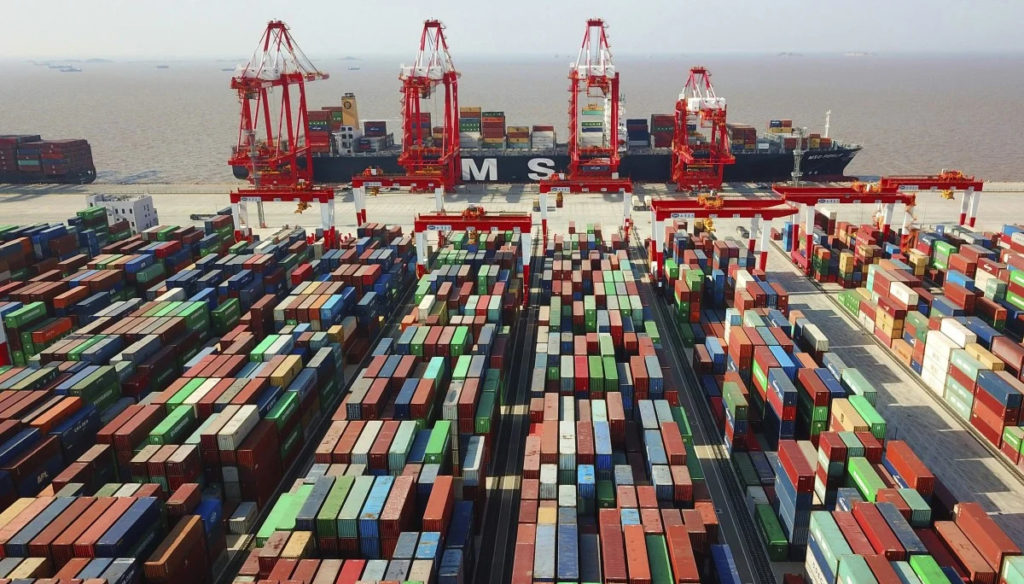At a virtual summit of the Association of Southeast Asian Nations (ASEAN) on November 15, its 10 members — along with China, South Korea, Japan, Australia, and New Zealand — ratified the Regional Comprehensive Economic Partnership (RCEP), creating the world’s largest free trade agreement. China immediately hailed it as “a victory for multilateralism and free trade,” clearly referring to the failure of the Trans-Pacific Partnership — from which China had been excluded — after the United States withdrew from it in 2017. For China specifically, this victory is both political and symbolic.
The sheer size of the agreement’s member countries, which together account for a third of the world’s population, should not mask its relatively narrow scope — at least for now. The RCEP is an initial attempt to standardize and harmonize the region’s quite heterogeneous economic areas and the multitude of treaties already in force. As noted in the Economist, when the TPP was being negotiated, “American officials would snootily dismiss RCEP as an inferior, 20th-century-style pact, focused on tariffs and rudimentary trade-facilitation measures, in contrast to the TPP, with its coverage of areas such as environmental and labour standards, and rules for state-owned enterprises.”
A Potential Long-Term Platform in the Fight for Domestic Markets
While the current agreement is more political than economic, it could serve as a platform to further integrate the Asia-Pacific region, at the expense of the United States, and serve Chinese interests in the struggle for emerging domestic markets in Southeast Asia. The ASEAN member countries have distinguished themselves by effectively managing the Covid-19 pandemic. As the Geopolitical Monitor reminds us, countries such as Vietnam are well positioned in the current economic situation. And the RCEP also brings the region’s three giants — China, Japan, and South Korea — together for the first time.
This agreement constitutes a de facto bloc that excludes the United States and India, whose relations with China’s have deteriorated, while strengthening China’s strategic and logistical partnerships with them. Moreover, according to a Peterson Institute for International Economics report (mentioned in the Economist article), the RCEP could have a greater financial impact than the TPP, generating an additional annual value of about $186 billion (compared to $147 billion for the TPP). The report also states that the benefits will be particularly significant for China, Japan, and South Korea. More importantly, the RCEP could also aid negotiations on a potential trilateral free trade agreement between the three Asian giants, one that would help them escape their current political binds.
A Significant Victory for China
In rapidly shrinking markets, the Covid-19 pandemic has made international competition even fiercer than it already was. The various capitalist powers are already beginning to battle over negotiating the economic recovery to their advantage, thus stirring up rivalries across the globe — to the detriment of the workers who are paying the full price of the crisis. The Asia-Pacific region finds itself in relatively good shape, buoyed by its more efficient management of the pandemic than North America’s and Europe’s. After four years of U.S. retreat during the Trump era, this development — even if confined for now to politics and symbolism — is a partial victory for the Chinese leadership. It is the second major agreement in the region that excludes the United States, as the Washington Post points out.
In situations of crisis, economics and politics tend to merge more sharply. The signing of the agreement and the Chinese media hype it has spurred may bode well for a deepening of China’s influence in the region, as evidenced by India’s keeping its distance from a treaty it mistrusts. In the looming global crisis, the struggle for Asian domestic markets will undoubtedly be a major component of the fundamental opposition between China and the United States, an opposition that will not disappear with Trump’s departure.
First published in French on November 16 in Révolution Permanente.
Translation by Scott Cooper










